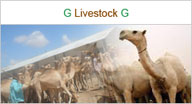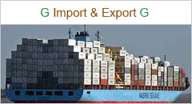By Tim Weiss on June 26, 2013

In a series of articles on VC4Africa, Tim Weiss explores private equity investment challenges in East Africa.
When investing, it is important to be aware of context-specific hurdles. Although investing is a risky business anywhere in the world, each market has its own characteristics. Below I’ll discuss 7 key hurdles to take when you are investing in East Africa, based on recent interviews I had with 22 representatives of (social) equity investment funds, consultancy companies, online news platforms and development finance institutions (DFI) focused on East Africa.
Highly fragmented investment market
In the East African Community (EAC) a diverse set of actors with an equally diverse set of objectives is at work. International foundations, NGOs, social impact investors, DFIs and government projects are mingling in the same space as incubators, accelerators, international & local banks, venture capitalists and private equity firms. The more players the better? This nexus of actors has huge potential, however, grant-giving institutions usually tend to impose different milestones on businesses then private sector investors.
Just to mention one example, getting a social enterprise off the ground with a grant might force an entrepreneur to concentrate increasingly on the target group and service delivery, rather than improving the business model so that it gets into shape for the next investment round.
A nonexistent labor division among the actors can create market distortion (i.e. overvaluation of companies) and substantially increase transaction costs for all. The loser in the end: the entrepreneur. In conclusion, an assessment is needed on the role that each actor takes up in the investment market right now, juxtaposing this with an ideal scenario that would allow adequate financing for entrepreneurs and an adequate deal flow for investors.
Risk-taking
Most deals are realized within the more developed and thriving economies. Investing where the needs, but also the risks, are highest should be, per definition, task of social impact investors. However, do we see their major deal flow coming from Burundi, Tanzania or extending the scope, South Sudan or Zimbabwe? Whose task is it and who could be a partner in mitigating risks? A critical reflection is needed.
With regard to the seed funding stage incubators, hubs and risk-taking foundations seem to instigate a first wave of solutions to support not only startups but also the necessaryindustry infrastructure.
Pioneer gap
The deal flow, a constant concern for every fund manager, poses a huge challenge, as structures to catapult new business ideas to the investment-ready level are not yet fully in place. A confluence of factors is at work, though the scarcity of organizations that provide risk capital and the missing link to subsequent financing rounds are crucial and need to be addressed. Much needed seed financing requires risk-taking programs which identify and accompany promising entrepreneurs. Who is to take over? Avant-gardists, such as the Omidyar Network or now the Shell Foundation, jointly with incubators (i.e. iHub &Village Capital) and accelerators (i.e. 88mph) provide risk capital in the seed stage.
A successful blueprint on how to properly organize a deal pipeline in emerging economies is yet to come. It could have huge impact on the Pan-African region. Certainly, the current programs active in this space are of utmost importance, though they will not capitalize if a subsequent financier is not available that can bring the business to the next step, namely, scaling up.
Entrepreneurship
Three factors are at play which influence day-to-day business : the way entrepreneurship is understood, the entrepreneur’s ultimate goal with the business and the new generation of entrepreneurs.
Firstly, entrepreneurs in East Africa are involved in a variety of business activities pertaining to various unrelated sectors. One may find that, in light of high uncertainty, an entrepreneur spreads the risk and therefore diversifies. Being engaged in various ventures is not a bad idea, on the contrary, it demonstrates an understanding of the market dynamics and what it takes to be successful. However, as an investor ready to invest in one of the entrepreneur’s ventures, what will be the repercussions of the investment for the other ventures? Will the entrepreneur dedicate all the resources to the portfolio company?
Secondly, the entrepreneurs’ or managements’ objectives in running a business may not necessarily follow the same rationale as the investors’. For a fund manager, the primary aim is to exit with the highest return (and/or social impact) as possible. The way down that route is manifold and an entrepreneur may follow a different mindset.
Thirdly, a new generation of entrepreneurs is coming up that is heavily exposed and interlinked with foreign business concepts. It is no longer a necessity to study abroad in order to get a sense of how other economies organize and structure their businesses. Academic concepts have been adapted and are being replicated at prestigious business schools, spreading wisdom on how to do business. External financing and (social-) innovation are prominent topics. In times of Massive Open Online Courses (MOOC) even high quality courses from Standford and other top universities are within ultimate reach. The African equivalent has just been set up by the African Management Initiative. This adds a dash of change to the “traditional” ways of doing business in East Africa, particularly observable in the tech industry and the increasing accessibility of rigidly structured family businesses.
Judiciary system
Buying into a company is a serious commitment with certain obligations and rights. Enforcing rights, if necessary, can be tricky and it often times needs case specific and creative solutions coupled with patience. It is clear that the EAC member states continuously reform their judiciary system but it still leaves significant loop holes which can amount to a costly and time-intensive process with uncertain outcomes. Again, being aware that the judiciary backbone is not as strong as in other markets calls for explicit caution while structuring a deal and increased monitoring & control measures during the investment phase.
High prevalence of corruption
Unfortunately, when talking about business, corruption has to be addressed. Many people have written about corruption but the actual question remains: how to deal with it? From an investor’s perspective, the agenda is twofold. The investor needs to make sure that the equity fund and the portfolio companies stay out of it, otherwise, serious problems on multiple fronts will arise. No matter how small or big the investments are, the business context is influenced by unwritten norms. This calls for increased sensitization on corrupt behavior, be it in the own organization, in the portfolio company or with external stakeholders. Internal processes might have to be adapted and refined to actively reduce the likelihood of getting drawn into corruption.
Exit deals
Once invested, the question arises: to whom to sell? Even though we have seen exits occurring, a proven track record of successful exits and preferable exit routes is still missing. A deliberate approach on documenting these exits would greatly enhance investors’ and limited partners’ confidence. Up to date an IPO, at least nationally, is a dead end. An LBO or, if possible, an MBO, seems to be the most likely event of an exit. The question of who will be buying in will soon be answered as multinationals (i.e. Walmart, Google, Microsoft, KFC) and large private equity funds increasingly expand their outreach.
An article from VC4A – http://vc4africa.biz/blog/2013/06/26/7-key-hurdles-to-take-when-investing-in-east-africa/
Entities that would like to make worthwhile investments in Somaliland should not hesitate to contact Guul Group. That is because investment should not be done blindly, but should be spearheaded by a well informed entrepreneurial team with up to date hands-on information about the potential business environment. That is what Guul Group has to offer. With a wide network, business experience, projects management and marketing projects, Guul Group is the exact service provider that you need to provide you with invaluable consultancy services that will guarantee your business prosperity.
Business in Somaliland is lucrative, but that can be elusive if the initial process of setting up the business is not well done. There are a number of challenges that are associated with investing in Somaliland, particularly if it is by someone who has not done extensive research or contracted the services of a well informed consultancy company like Guul Group.
If you really want to do business in Somaliland and in extension, the Horn of Africa, you should contact Guul Group for its consultancy services in business, management and marketing.
Get in touch with Guul Group













